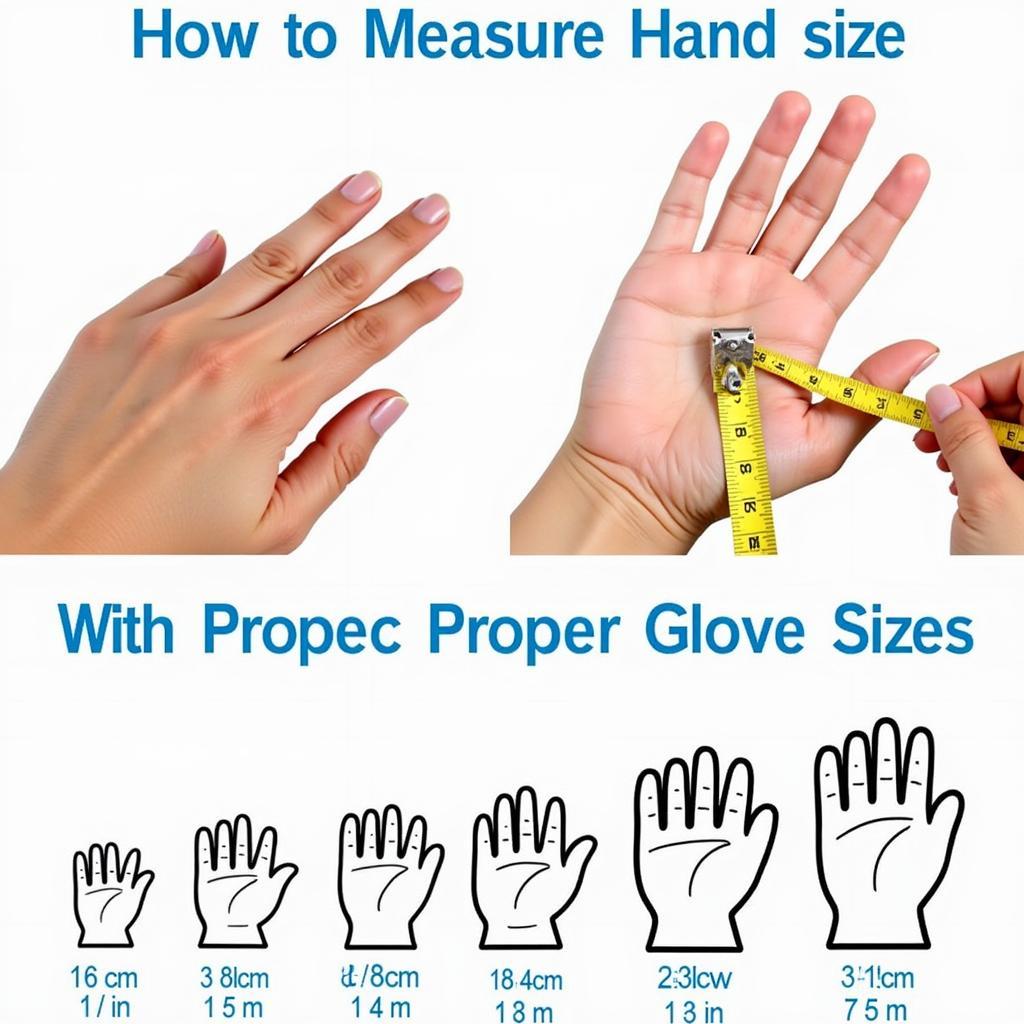Best Food Handling Gloves are essential for maintaining hygiene and safety in any food environment. Whether you’re a professional chef, a home cook, or working in food service, understanding the nuances of food handling gloves is crucial for preventing cross-contamination and ensuring food safety. This guide will explore everything you need to know about choosing, using, and maintaining the best food handling gloves for your needs. Let’s dive in!
After the initial preparation, ensure your don’t the food with bare hands for maintaining optimal hygiene.
Types of Food Handling Gloves
Understanding the various types of food handling gloves available is the first step in making an informed decision. Each material has its own strengths and weaknesses, making it suitable for specific tasks.
Vinyl Gloves
Vinyl gloves are a popular choice due to their affordability and ease of use. They offer a comfortable fit and are suitable for low-risk tasks like serving food or handling pre-packaged items. However, they are less durable than other options and are not ideal for handling greasy or oily foods.
Nitrile Gloves
Nitrile gloves are known for their durability, puncture resistance, and chemical resistance. They are a good choice for tasks involving raw meat, poultry, and seafood. They also provide excellent barrier protection against potential allergens.
Latex Gloves
Latex food prep gloves offer a snug fit and excellent dexterity, making them ideal for tasks requiring precision. However, some individuals may have latex allergies, so it’s crucial to consider alternatives in such cases.
Polyethylene Gloves
Polyethylene gloves are a lightweight and economical option often used for short-duration tasks. They are commonly seen in deli counters and for handling ready-to-eat foods. However, they are not as durable as other options and are not recommended for tasks involving sharp objects.
Choosing the Right Food Handling Gloves
Selecting the best food handling gloves depends on several factors, including the specific task, the level of dexterity required, and potential allergies.
Task-Specific Considerations
Handling raw meat requires gloves with higher puncture resistance, while preparing salads might only require lightweight polyethylene gloves.
Dexterity and Comfort
For tasks requiring intricate work, gloves offering a snug fit and excellent dexterity are essential.
Allergies
Be mindful of potential latex allergies and choose alternatives like nitrile or vinyl gloves if necessary.
A hot food table also benefits from proper glove usage for sanitary serving.
 Choosing the Correct Glove Size
Choosing the Correct Glove Size
Proper Glove Usage and Maintenance
Using and maintaining food handling gloves correctly is crucial for maximizing their effectiveness and ensuring food safety.
Handwashing Before and After
Always wash your hands thoroughly before and after wearing gloves. This helps prevent the spread of bacteria.
Changing Gloves Regularly
Change gloves frequently, especially after handling different types of food or if they become torn or contaminated.
Proper Disposal
Dispose of used gloves properly in designated waste receptacles to avoid cross-contamination.
Why are Best Food Handling Gloves Important?
What makes best food handling gloves so important? They are the first line of defense against cross-contamination, preventing the spread of bacteria and allergens. Using the correct gloves ensures food safety and protects both food handlers and consumers.
“Food safety is paramount. Investing in quality food handling gloves is a small price to pay for the peace of mind they provide,” says renowned food safety consultant, Dr. Amelia Carter.
Best Food Handling Gloves and Food Processing Equipment
Using the correct gloves is only one part of ensuring food safety. Combining them with the right equipment, such as a conveyor belt for food in a processing setting, can greatly enhance hygiene and efficiency. This is especially true for larger scale operations where maintaining consistent hygiene is crucial.
“Effective food processing requires a holistic approach. From the smallest detail like choosing the right gloves to larger equipment choices, every decision contributes to overall safety and efficiency,” adds Dr. Carter. Think of it like this – when using 200 proof ethanol food grade for sanitation, you’ll still need appropriate gloves to ensure proper application and protect your skin.
Conclusion
Choosing the best food handling gloves is an essential step in maintaining food safety and hygiene. By understanding the different types of gloves available, considering task-specific requirements, and following proper usage and maintenance guidelines, you can ensure a safe and healthy food environment. Remember, investing in high-quality food handling gloves is a small price to pay for the well-being of your customers and the success of your business.
FAQ
- What are the best food handling gloves for handling raw meat? Nitrile gloves are a good choice due to their puncture resistance.
- Are latex gloves suitable for everyone? No, some individuals have latex allergies.
- How often should I change my food handling gloves? Change gloves frequently, especially after handling different types of food.
- Why is handwashing important when using gloves? Handwashing before and after glove use prevents bacterial spread.
- What are the most economical food handling gloves? Vinyl and polyethylene gloves are generally the most affordable.
- Are there biodegradable food handling glove options? Yes, some manufacturers offer biodegradable options made from materials like cornstarch.
- How do I choose the right glove size? Measure your hand circumference and consult a sizing chart.
Common Scenarios
- Scenario 1: Handling raw chicken. Use nitrile gloves for optimal protection.
- Scenario 2: Serving prepared salads. Lightweight polyethylene gloves are suitable.
- Scenario 3: Working with spicy peppers. Nitrile gloves offer good chemical resistance.
Further Exploration
For more information on food safety and hygiene practices, explore other articles on our website. You might also be interested in learning more about proper handwashing techniques.
Contact us for support: Phone: 02437655121, Email: minacones@gmail.com or visit us at 3PGH+8R9, ĐT70A, thôn Trung, Bắc Từ Liêm, Hà Nội, Việt Nam. We offer 24/7 customer service.